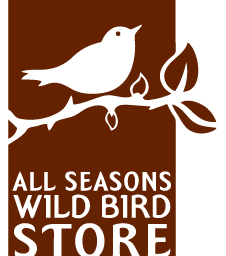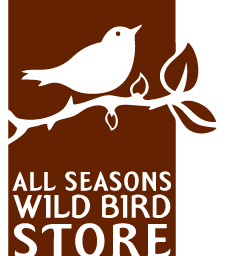1. Provide a variety of fresh, high-quality, nutrient-rich seeds and suet.
A variety of seeds will attract a variety of birds. Black oil sunflower, sunflower chips, Golden Safflower, peanuts and Nyjer® all provide the needed high-oil content that birds need, especially over these winter months. Suet that includes peanuts, sunflower, and even insects, will help your backyard birds through the cold days and nights.
2. Keep bird feeders clean.
Wet seed can produce mold and bacteria even in the cold months and can spread disease to birds. Bird droppings are also a health hazard to our backyard birds. Be sure to clean your feeders on a regular basis.
3. Provide a water source all year.
Even in the winter, birds need to keep their feathers clean in order to provide the best insulation during the cold days and nights. Birds can get a drink by eating the snow, but it takes a lot of energy to convert that snow to water—energy that they cannot afford to use during the winter.
4. Plant for birds.
A favorite winter pastime for gardeners is planning for the spring and summer seasons. Include plantings for the birds in your plans. Trees, shrubs, flowers that can provide food (berries, nuts), nectar, and shelter can increase the number and varieties of birds that visit your yard. See our Landscaping for Birds page for more details.
5. Reduce window collisions.
Nearly a billion birds are killed in North America due to window collisions. Almost half of them happen at residential houses. Birds often don’t see window glass as a barrier, instead they see a seamless continuation of the habitat in the window reflections. There are many easy solutions to reduce window strikes, including vinyl decals that emit a UV light that birds can see, but humans cannot. We can also reduce window strikes by careful placement of bird feeders, and even the use of window feeders for the birds.
You can contact our knowledgeable staff at any of our neighborhood stores for help with any of your bird lovers’ New Year’s resolutions.


